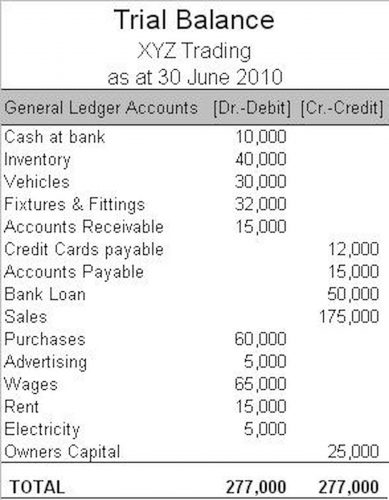
The best accounting platforms integrate seamlessly with other business processes, including purchase orders, employee expenses, travel management, inventory, and payroll. This integration creates a single source of truth for all financial data, making it easier to track and manage your company’s finances across departments. Accounting software transforms how you handle financial data by automating manual tasks and providing real-time insights. Your accounting team saves time and reduces errors by automating data entry, while cloud-based systems eliminate paper files and give you secure access to financial records from anywhere.

Challenges of B2B transactions
Auditing tasks are commonly required throughout the invoicing process, including invoice matching and invoice reconciliation. These accounting standards are a simpler version of the IFRS for small and medium-sized entities that don’t publicly trade shares or debt. They cover financial statements, leases, and revenue recognition but aim to make it easier and less expensive for small businesses to prepare financial reports. Businesses rely on accounting data to make better decisions faster, create budgets, forecast performance, and evaluate their financial health. Also, stakeholders, such as investors and creditors, depend on accurate financial information to assess a company’s performance and potential. So, quick access to accurate financial information helps you see opportunities and stay competitive.
- You likely will also maintain separate books for assets and liabilities.
- As your business grows, it can be difficult to keep track of all your tax information reporting obligations.
- This allows you to generate crucial financial statements, such as a balance sheet, cash flow statement, and profit and loss report.
- Recording, analyzing, and interpreting your business’s financial information with the aim to keep track of your business is referred to as business accounting.
What Are the Tasks of an Accountant?
The process of deciding the price of a newly launched product is quite similar too. Accounting for Marketing Agencies There are several types of accounting, such as financial, managerial, and cost. Communication is quick and reliable—the Bench platform allows you to send messages straight to your bookkeeper or set up a call to go over any financial questions that might come up. Our premium package even includes tax filing, which makes all accounting tasks completely automated. Most small businesses have more basic accounting needs, which means cash basis is often the right fit.
- That information is essential to assess how quickly your business is developing and guide future decision making.
- Accounting consists of tracking financial transactions and analyzing what they mean for your business.
- Business accounting provides companies with the financial insight and records to make strategic and smart projections and budgets.
- Let’s say you’re a self-employed surfing instructor who bills clients for surfing lessons.
- From forecasting to invoicing, business accounting works with more extensive decision-making and granular levels of operations through financial tracking, analysis, recordkeeping, budgeting, and more.
- B2B partnerships help businesses scale efficiently by outsourcing specialized functions to another business with more expertise in those areas.
What is the simplest accounting software?

Without accounting, it would be incredibly difficult to gauge your business’s performance and whether it’s on track to meet its goals and obligations. Because their reports are regularly scrutinized by oversight agencies, accountants are required to adhere business accounting definition to a uniform set of accounting standards. These rules specify how to record income, expenditures, assets, and losses, so that auditors have an objective view of the organization’s financial health.
- Stakeholders, like creditors, regulators, and investors, depend on this accurate financial data to make informed decisions about the business.
- Tax accounting focuses on ensuring compliance with tax laws and regulations and accurately calculating and reporting an entity’s income tax obligations.
- Cash flow statements include internal and external cash inflows and outflows over a certain period, which may include investments, financing, and operational costs.
- Financial advisors can use the financial data from business accounting to help small business owners make important financial decisions about the future and day-to-day operations.
Accounting software
A company might use these standards in accounting when expanding to export overseas. Foreign stakeholders like distributors may ask for financial statements that meet IFRS standards. Over 160 jurisdictions worldwide rely on the International Financial Reporting Standards (IFRS). Like the U.S. accounting principles, IFRS guidelines aim to improve company and investor financial reporting communication.

This comprehensive business accounting guide will explore the basics of accounting in business and provide practical tips to help you manage your business finances effectively and strategically. Get ready to empower your financial decision-making and steer your company toward sustainable growth. For example, if you provide $1,000 in services on credit, your accounts receivable (asset) increases by $1,000, and your revenue (which flows to equity) increases by $1,000. The accounting equation remains balanced with assets increasing by the same amount as equity. Internal Revenue Service rules for tax reporting can differ from GAAP, cash basis accounting, and IFRS. Understanding tax accounting standards is essential for taking advantage of small business deductions and submitting accurate forms.

Modern bookkeeping services go beyond basic record-keeping, offering CFO-level insights that help businesses improve cash flow, optimize expenses, and make data-driven financial decisions. Strategic bookkeepers provide real-time financial intelligence, track key performance indicators (KPIs), and ensure businesses remain audit-ready and investor-friendly. By leveraging advanced Accounting Periods and Methods bookkeeping services, businesses can enhance profitability, improve budgeting, and navigate tax compliance with greater confidence—all without hiring a full-time CFO. The primary output of the financial accounting system is the annual financial statement.
